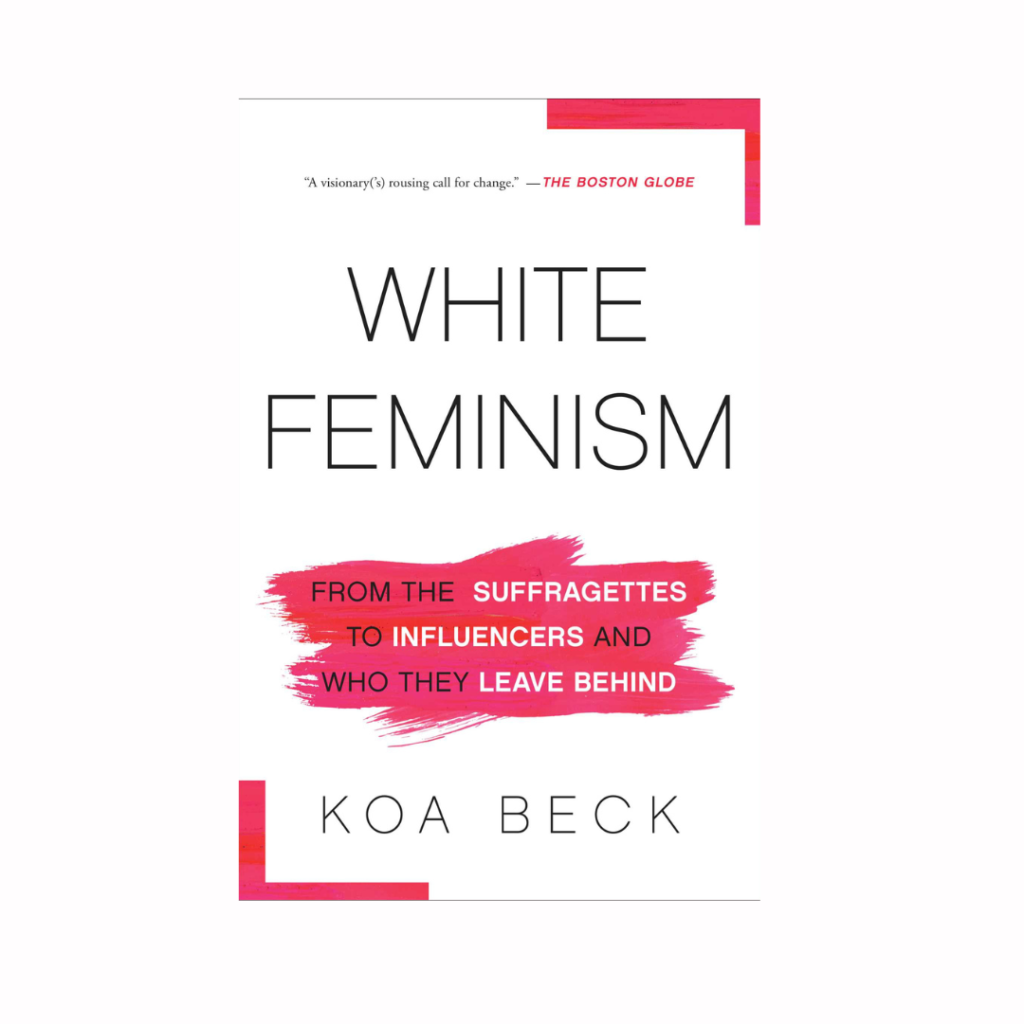White Feminism: From the Suffragettes to Influencers and Who They Leave Behind by Koa Beck is a thoughtful and educational book about how, well, feminists have dropped the ball throughout history and how to move forward with a more inclusive movement. Don’t know what I’m talking about?
White feminism, “is the label given to feminist efforts and actions that uplift white women but that exclude or otherwise fail to address issues faced by minority groups, especially women of color and LGBTQ women.” White feminism has been present throughout our history for centuries. The first wave of feminism began in the mid-1800s and fought for women to have the same rights as men, primarily with the goal of gaining women the right to vote. However, this truly wasn’t a movement to help women gain the right to vote – it was a movement to help white heterosexual cisgender women gain the right to vote (Natalia wrote more about the suffrage movement as well). There was a specific type that the feminist movement wanted to support – people of color, LGBTQ+, disabled, immigrants, and any other underrepresented group in the States didn’t make the cut.
White Feminism calls to attention the times in history when all these groups were left out of feminism. Beck outlines how patriarchy, white supremacy, capitalism, and racial prejudice have all impacted the movement for the worse. One example that I thought was interesting was the role of white feminism in capitalism – Renee interviewed Koa Beck, to learn more about her thoughts on how white feminism is complicit in late capitalism for the FBC podcast. Many people deem themselves “feminist” because they declare it through a graphic tee with the phrase “The Future is Female”. Is it true though? Is it true for every person who is a woman?
It was vastly interesting to me to learn how white “feminists” have used resources from people of color to further their own personal agendas while leaving them behind. It’s a tale as old as time that has plagued the advancement of a truly intersectional movement.
Beck’s White Feminism educated me on the waves of feminism while opening my eyes to the privileges that white feminism has afforded throughout history. When lesbians were fighting for equal rights as queer women, they were only fighting for white women – where were the trans women? The Black women? The Hispanic women? Trans people of color, like Sylvia Rivera and Marsha P. Johnson, were at the forefront of the LGBTQ+ movement in the 1960s – and you’re seriously going to exclude them?
This is white feminism at its core. You fight for what’s familiar and avoid intersectionality. You let patriarchy dictate the narrative and give you what it can, rather than everything you demand in order to truly be equal. White Feminism is a must-read for anyone and everyone who considers themselves a feminist because there is only one way to truly hold that title – you must be intersectionality. You must want justice for all. Thank you Koa Beck for writing such a thorough book on the importance of creating an intersectional feminism movement and uplifting all, rather than just one group.


